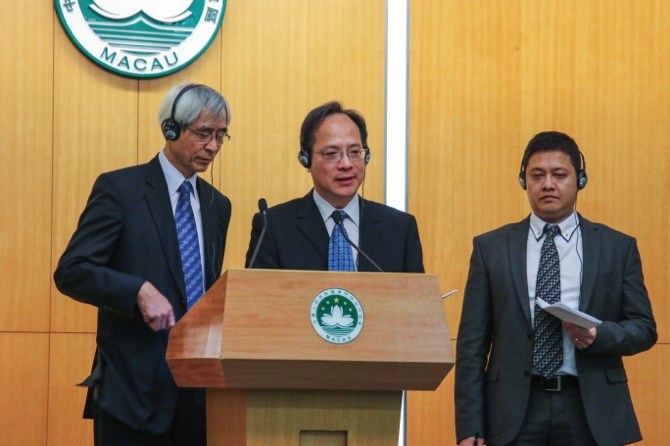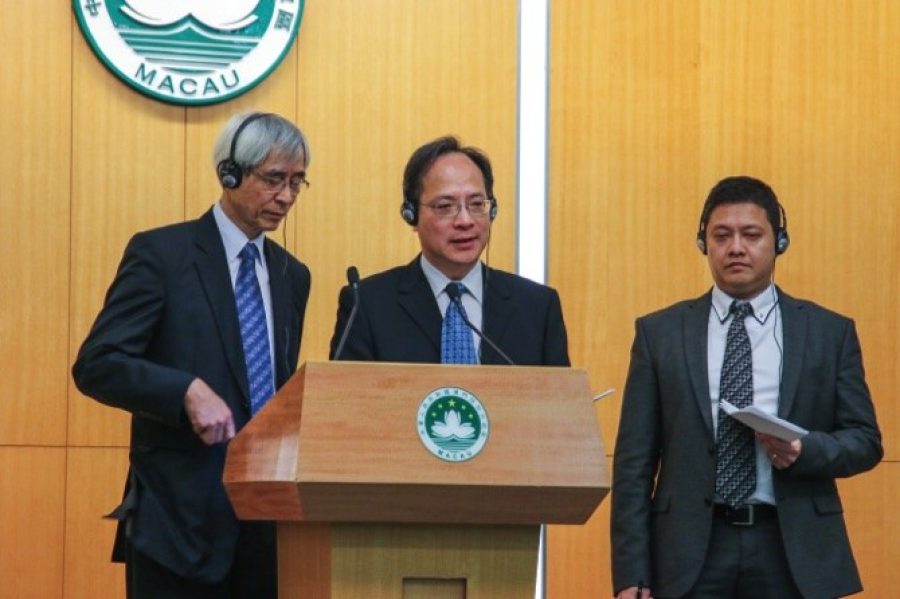Debate over legal amendment which establishes new rules for the financial transparency of Macau based persons and companies which have tax residences abroad has reached a conclusion.
The amendment will be sent to the Legislative Assembly (AL) in the next couple of days to be voted on and approved, the spokesperson of the Executive Council (ExCo), Leong Heng Teng, informed in a press conference on Tuesday.
The proposal was made because of the need to adapt the current Law on Exchange of Information on Tax Matters so that it will comply with the Common Reporting Standard and Due Diligence on Financial Account Information (CRS) from the United Nations (UN) Organization for Economic Cooperation and Development (OECD).
The CRS from the OECD demanded that all countries need to start sharing this information in an automated system and that these automated systems should be operational by 2018. The OECD also encouraged countries and persons to participate in these systems in a more voluntary and spontaneous way.
The ultimate goal of such systems is to help to fight fraud and tax evasion and avoidance.
Besides the already established mechanism of formal request of information, the revision establishes two new mechanisms that will include the automated exchange.
As Leong explained, while the exchange of information by request is due to “people, associations, foundations or other legal entities that are supported by other government services, institutions or people in MSAR [regarding their actions] related to operations done in the finance system, ‘offshore’, and insurance,” such information sharing is depending on approval by the Chief Executive. If approved, they will be done with entities with “which Macau has agreed a principle of reciprocity and as long as Central or local government secrets are not violated as well as other commercial or professional secrets are not questioned.”
Answering questions posed by journalists, Leong said that such information might include “names, addresses and account balances.” He said that such a system does not include Macau residents “that are not included in other countries’ taxation systems,” aiming mostly to “disallow multinational companies that are based in different countries to transfer part or the totality of their profits into a different country in order to benefit from more a convenient taxation” he noted.
As for the automated exchange of information, the first of these mechanisms are related with the finance institutions and establishes that information of banking operations should be recorded and shared with the Financial Services Bureau (DSF) in pre-established periods in a systematic way. Records of such information should be kept for a period of five years.
As for the spontaneous exchange, it is related to information regarding tax exemption or reduction that might justify the payment of extra taxes on another country and as the ExCo spokesperson explained is mostly related to a system that will allow crosschecking of information preventing contributors from providing “false declarations in other countries about their assets and benefits.”
The draft will also establish administrative penalties regarding the responsibilities of the entities, personal data protection and regarding the principle of confidentiality as well as empowering the DSF with the ability to undertake and manage the exchanges and supervise the financial institutions that would perform automated exchanges.
The director of the DSF, Iong Kong Leong, replying to questions from the media also noted that in the cases where there is a request for information, the authorities must inform the account holder.
Iong also noted that to fulfill the international agreements to provide information from 2018 the financial institutions will need to start to collect data from July 1 this year.
(Macau Daily Times/ Macau News)






